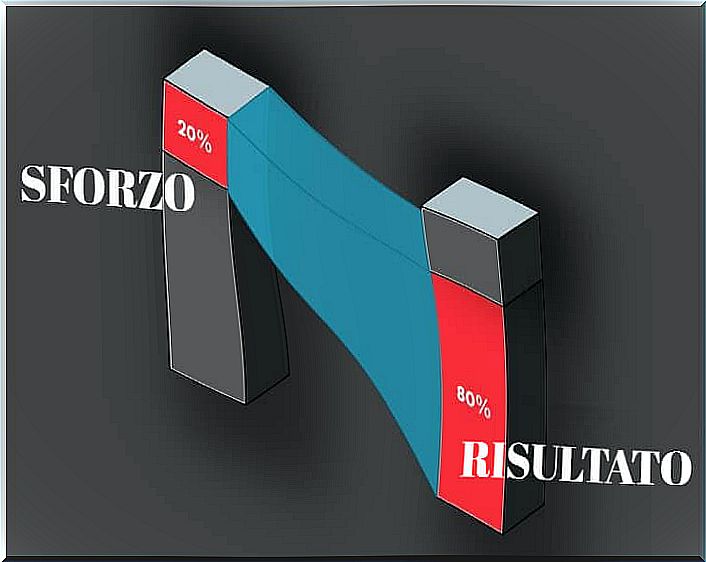The Pareto Principle For Being More Productive

If we consider the maxim of Colin Powell, a former US general, “There are no secrets to success. It is the result of preparation, hard work and learning from failure ”, perhaps the Pareto principle loses its meaning. What is certain, then, in the law formulated by the sociologist, which seems to invite us to achieve our goals with minimal effort?
The economist Vilfredo Federico Pareto, born in Paris, but of Italian nationality, formulated his famous principle more than 100 years ago, however, there are not a few who still follow it as if it were a law. Let’s find out what it is.
The Pareto principle
The Pareto principle is also known as the 80/20 Law. Pareto believes we achieve 80% benefits with 20% effort. These percentages are valid for any area of life, therefore personal, work, social.
Pareto, a philosopher and sociologist, as well as an economist, was really betting on productivity. We could say that he did not believe in prolonged effort, but in what really led to good results, namely selective effort.
While it is a great simplification to summarize the Pareto principle with the idea of achieving success without effort, it certainly allows us to reevaluate something we often forget: look in our world for what is really productive and focus on that activity at all levels. .
Pareto argued the importance of reducing stress in many areas of life. It is simply necessary to strengthen the efforts that really translate into a great benefit. However, despite the 80/20 simplification, his experiments have shown that with 15% -25% of work, between 75% and 85% of success can be achieved.

How to observe the Pareto principle
Obviously the Pareto principle has real applications. It is based on the idea that 80% of the consequences of what happens to us depend on certain causes for 20%. The famous sociologist analyzed several situations.
For example, 20% of the population of a country flaunts 80% of the total assets. Based on this, Pareto postulated that:
- 20% of customers typically generate around 80% of the benefits of a business.
- 80% of our personal satisfaction depends on the 20% of the people who are part of our social circle. They are the ones that give us love, friendship, understanding, etc.
- When exercising, only 20% of the activity guarantees 80% of the real benefits.
Pareto was not mistaken in saying that 20% of the effort, if well directed, represents 80% of the success. Conversely, if the effort is not managed properly, while maintaining the percentages, the success levels will be much lower.
How to apply the Pareto principle
Vilfredo Pareto, as a sociologist and economist, referred to reality for his research. In this sense, he tried to investigate how to take advantage of his principle, because, unknowingly, we transfer everything to a practical level.

However, we are not all aware that we are following this law. There are a few ways to find out. If you want to apply it more consciously, you can focus on some aspects:
- If you delegate activities that you know are not really important, then you are applying this principle.
- If you do what you like and don’t devote yourself to it all day, chances are you are following this principle.
- Make others approve of what you do, but try to spend more time making your wishes come true.
- You are working or living the way you like and who you really want to do it with.
- Do activities that require a lot of effort, but don’t spend all your time on them, just the right and necessary time.
As you can see, the particular Pareto principle can have very interesting practical applications. While it requires a certain amount of effort, it also implies the need to manage time sensibly. Without a doubt, it is a good law that we should follow in everyday life. It’s simple, it reinforces what we’re really good at and if we can optimize that 20%, the results will come soon!









